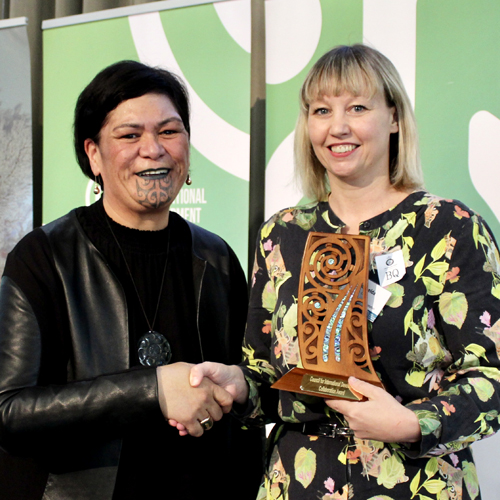Posted on 25 October 2022
Congratulations to The Fred Hollows Foundation and Care International PNG, who are the winners of the 2022 CID Collaboration Award.

The CID Collaboration Award recognises and celebrates the importance of effective relationships, partnership, and collaboration within and across the sector to tackle key challenges.
The judging panel found it difficult to choose only one winner. All the entries were outstanding and demonstrated the value of partnership and collaboration.
Gender analysis of eye care services in Papua New Guinea
Access to eye health care is limited in Papua New Guinea (PNG) due to factors such as low literacy, transport difficulty and distance to services, lack of awareness of the services available of treatment for eye care, the high cost associated with services, especially spectacles, and underlying beliefs related to sorcery and eye problems. These factors unequally impact women and the 2017 Rapid Assessment of Avoidable Blindness highlighted that the prevalence of blindness is significantly higher in women than men.
The purpose of this research was to better understand the current gendered context around access to eye health services to strengthen eye health care in PNG. An initial desktop review was conducted to provide a review of the current published information on gendered access to eye health care. Next, the tools for the qualitative fieldwork were developed based on findings and gaps identified in the review. A total of 151 people from Goroka, Madang and Port Moresby participated in this study. Findings highlighted that gender inequity is a significant barrier to women accessing timely eye health services. These inequities were exacerbated by inadequate resourcing and eye health facilities, long distances, security and safety of women, and COVID-19.
The Foundation partnered with CARE International in PNG to deliver this research project. It was crucial for the organisation that this project was locally developed and led to ensure culturally appropriate approaches to the research given the nature of the topic being investigated. A local researcher allowed for rapport to be built quickly and for participants to be at ease when disclosing sensitive information. Further to this, the project was in line with The Foundation’s principle of strengthening local capacity and using evidence to inform programmatic decisions. This was the first time the lead researcher had conducted large-scale national research making this collaboration successful on many fronts for all parties involved.
